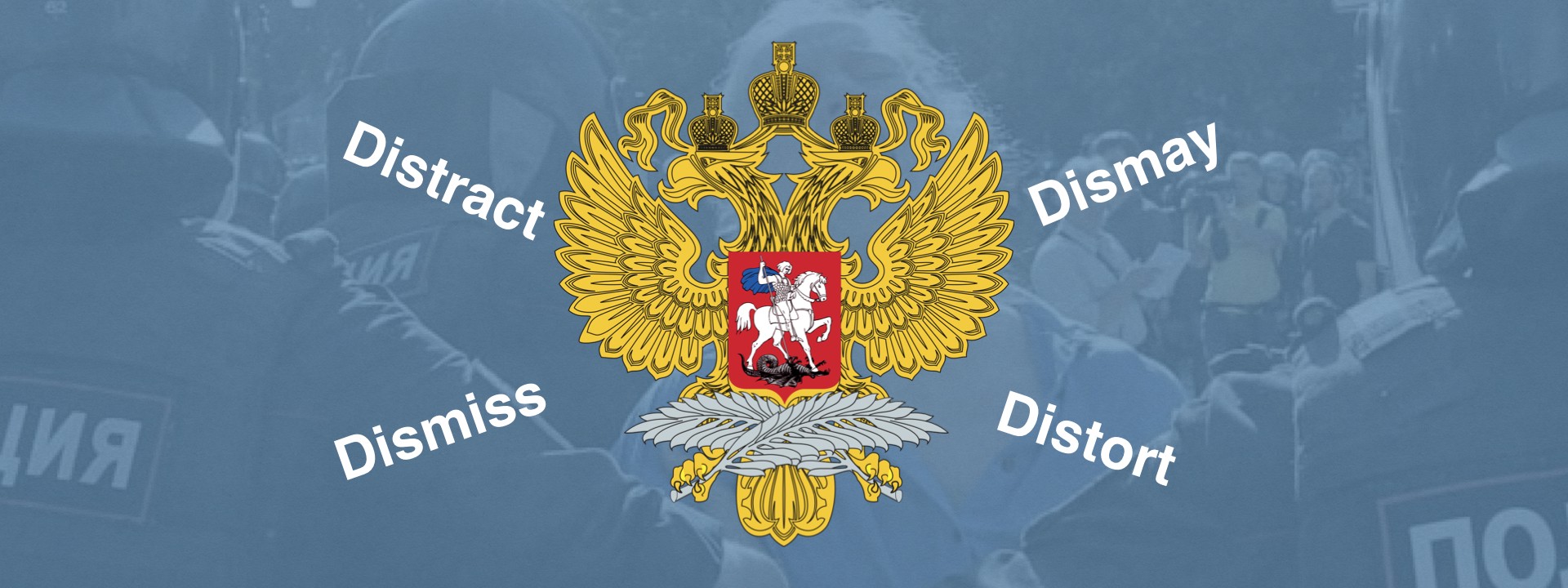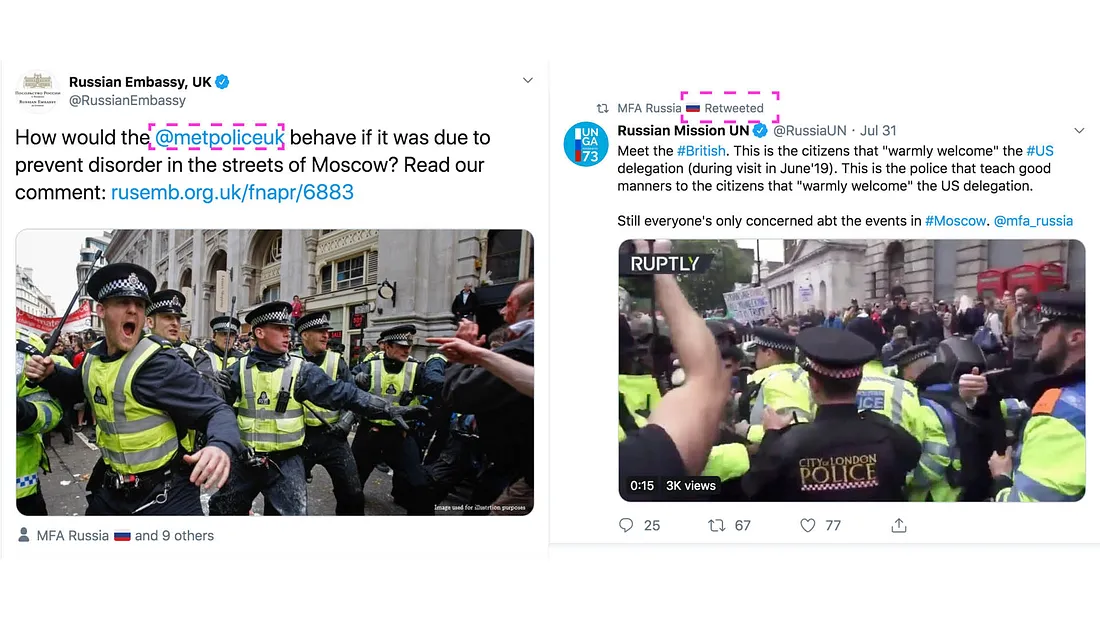Disinfo bingo: The 4 Ds of disinformation in the Moscow protests
Applying the 4 Ds of disinformation formula to assess the Kremlin’s propaganda surrounding the Moscow protests
Disinfo bingo: The 4 Ds of disinformation in the Moscow protests

BANNER: (Source: @LAndriukaitis/DFRLab)
In response to coverage of the ongoing Moscow protests, the Kremlin has deployed a tried-and-true blueprint: the 4 Ds of disinformation.
Enough time has passed since the protests first erupted to allow for an overview of the overarching themes of the Kremlin’s information operation. As in past cases, the Kremlin has repurposed the same four-point framework to craft its alternative narrative of events: Dismiss, Distort, Distract, and Dismay.

Dismiss
The first D is dismiss: if you do not like what your critics say, insult them. The Russian Embassy in the United Kingdom recently used this tactic in its response to a British media inquiry regarding reports of the use of force by Moscow police against protesters.
The Embassy’s answer first gave excuses for the police violence then levied accusations against the British media. It presented a list of protests that have taken place in the United Kingdom, arguing that the British media applies a different standard to domestic unrest. The Embassy further denounced the British media’s coverage of the Moscow protests as cynical and biased.
Another example of @thetimes bias. Read our comment:https://t.co/XO7EE7GFca pic.twitter.com/LNVGzbtjKC
— Russian Embassy, UK (@RussianEmbassy) August 1, 2019
Distort
The second D is distort: if you do not like the facts, twist them. The Kremlin employed this tactic in its accusations that the U.S. Embassy in Moscow had meddled in Russia’s domestic affairs. On August 5, Russian Ministry of Foreign Affairs (MFA) spokeswoman Maria Zakharova claimed that the U.S. Embassy had intervened in Russian domestic politics by publishing a detailed map of the protest route.

This map was taken from opposition leader Alexei Navalny’s Facebook page and read: “A stroll in the avenue on August 3 at 14:00.” The message on the U.S. Embassy’s website, however, was an explicit advisory notice to U.S. citizens to avoid the route due to the expanded police presence.
Distract
The third D is distract: if you are accused of something, accuse someone else of the same thing. The Kremlin has distracted from Western media outlets’ reports on Russian police brutality by accusing various Western countries of excessive use of force in response to domestic unrest.
❗In 2010, #London Metropolitan #police used “disproportionate” force during #student protests. Is #kettling the #UK way of protecting people’s rights to freedom of expression, association and assembly?#IsThisDemocracy #PoliceInAction pic.twitter.com/wRcACQfMcM
— MFA Russia 🇷🇺 (@mfa_russia) July 31, 2019
Similar posts appeared on the Russian government official Twitter accounts.

The Russian MFA Twitter account, in particular, deployed this tactic against several Western countries’ official Twitter accounts. When foreign embassies expressed concern about Moscow police violence, the Russian MFA replied with videos of protests from each of the embassies’ countries.

Dismay
The last D is dismay: if you do not like what someone else is planning, try to scare them off. The Russian MFA used this tactic on August 8, when it accused the German media outlet Deutche Welle of inciting Russian citizens to join the “unsanctioned protests.”
The Russian MFA stated that if Deutche Welle persists in its coverage of the protests, Russia “reserves the right to respond within the framework of the current legislation.” Russia then threatened to revoke DW’s accreditation after the outlet’s Director General Peter Limbourg rejected the allegations and refused to come before a parliamentary commission in Moscow.
Follow along for more in-depth analysis from our #DigitalSherlocks.

